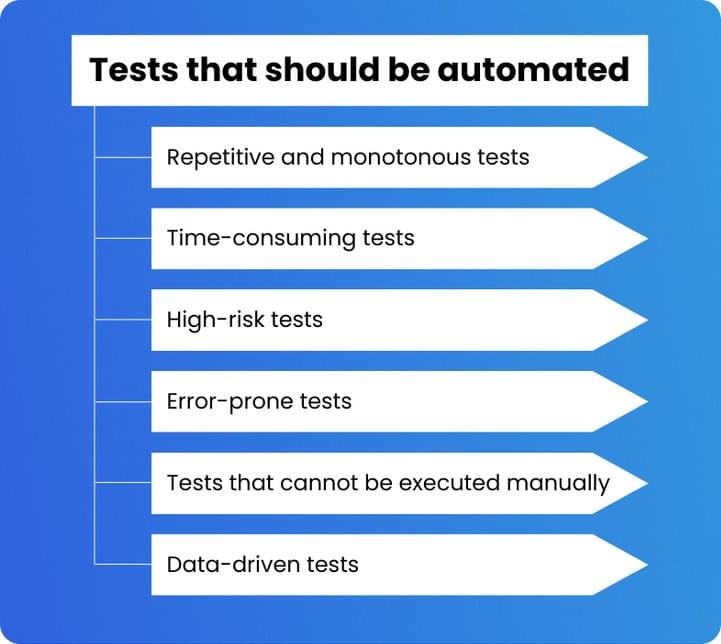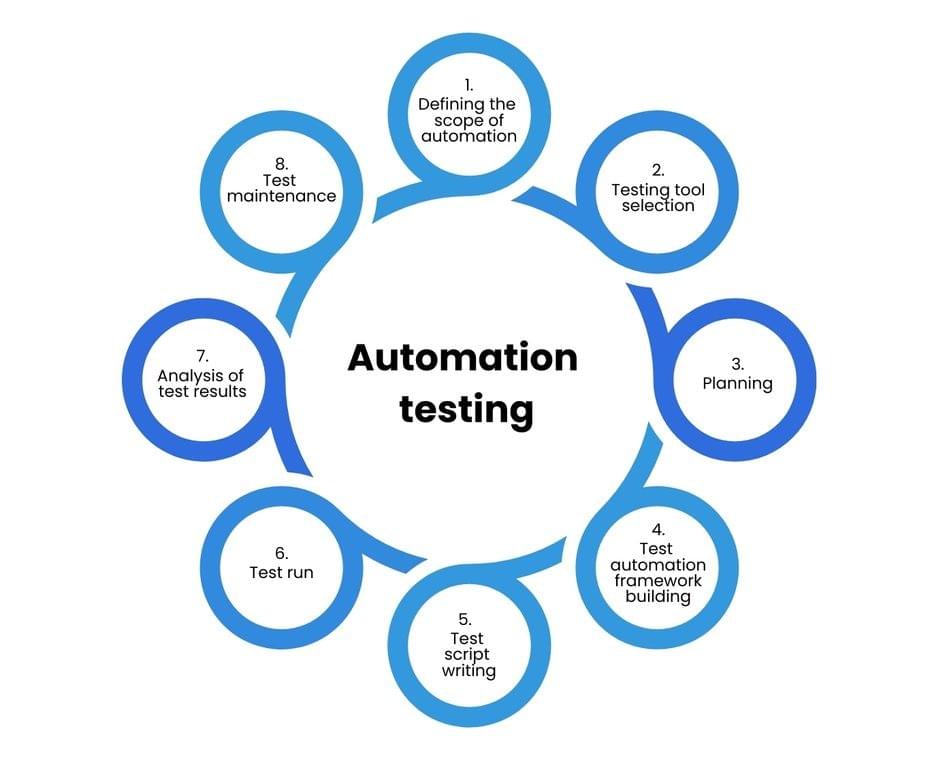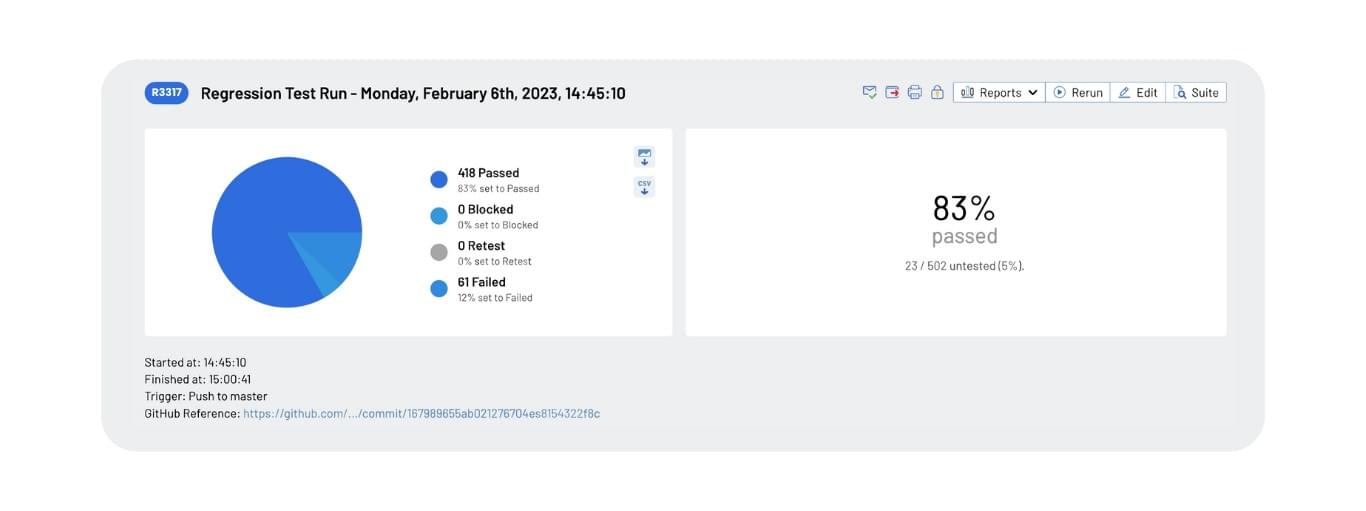Drive Your Product Quality With Test Automation
Start a ProjectGet our FREE POC Automation Testing Services to prove our expertise
Get Free POC
There is a direct correlation between product quality and business success. Thus, Charles Fishman in his article makes the conclusion that NASA owes the success of its Space Shuttle program to the excellence of the spacecraft software: "The last three versions of the program - each 420,000 lines long - had just one error each. The last 11 versions of this software had a total of 17 errors. Commercial programs of equivalent complexity would have 5,000 errors." This makes the Space Shuttle's software as near to being bug-free as mankind has ever developed.
Granted, the majority of developed software products are not multi-billion dollar feats of astronautics, but it does not mean that product teams should not pursue perfection. High quality means happy users, a sound reputation, and high revenue. That is why there is so much buzz about software testing. Automation testing, in turn, makes it quite possible to launch software into production with very few bugs. How? Well, let’s dive deeper into the topic.
Discovering the Value of Automation Testing
Automation testing is a process of software verification and validation executed with the help of special software testing tools. These days most agile projects implement automation testing.
Specs in the Cypress tool

To see its true value, it is worth recalling what software testing was like before automation testing was widely adopted. A QA process suggests checking not only newly added features but also repetitive testing of previously developed features to be sure that any code modifications have disrupted them. We know it as regression testing. Large projects have extensive suites of regression tests that continuously grow. In the old days, regression testing was a daunting task. It was a norm that every software release was preceded by several sleepless nights for a whole QA team. The increase in the number of devices, operating systems, and browsers added fuel to the flame as well. It was indeed challenging and hardly possible to run the whole set of regression tests in time. The advent of automation testing has made a huge difference. Just imagine, numerous tests run across several browsers and platforms simultaneously on their own while QA experts can divert their attention and efforts to other important testing activities.
Automated tests can be executed simultaneously across several browsers, platforms, and devices.

Consequently, repeatedly executed and time-consuming tests like regression and smoke tests are the prime candidates for being automated. Beyond that, it makes sense to automate high-risk tests, error-prone tests, tests that cannot be carried out manually, for example, performance tests, and data-driven tests, i.e. those that are executed with multiple data sets.

So, automation testing brings numerous benefits, however, to get the most out of it, comprehensive preparatory work should be done. It takes a certain time and effort but everything is repaid in the long run.
Steps to get started with automation testing

So, first of all, a team decides on the scope of automation testing, i.e. functionalities and user scenarios that should be covered with automated tests.
With regard to the scope of testing and project peculiarities, a QA team selects the most appropriate automation testing tool. These days, there are a great variety of both open-source and commercial solutions - Playwright, Cypress, Selenium, Appium, TestComplete, Silk Test, etc. Still. It is worth remembering that each variant has its own pros and cons and hardly can supply all your needs.
Decent planning is half the battle. At this stage a final decision on testing tools is made, framework design and features are confirmed, in-scope and out-of-scope items are specified, test script writing and execution are scheduled, etc.
The next phase is automation framework building. It is indeed an important step as an automation framework provides the infrastructure that an automation testing tool uses to execute tests. There are several types of frameworks: linear, modular, data-driven, keyword-driven, and hybrid.
Test script writing lies at the core of the whole process. Automation QA engineers write easy-to-maintain scripts with regard to the chosen user scenarios and expected test results. Once written scripts can be rerun as many times as needed.
Test running

As everything is ready, test execution is launched. Test results are generated automatically. So a QA team reports detected bugs and analyses test results to identify the most problematic software modules.
Test results generated by a Cypress automated test run within TestRail

Later, as new test scripts are added to a suite, previously written test scripts are reviewed and maintained in order to ensure the effectiveness of automation testing with each successive release cycle.
Benefits of Automation Testing
You might have already understood that test automation definitely brings a lot of value. Still, let’s dig deeper and take a look at its key advantages.
Testing at the speed of light
Of course, this is an exaggeration, but automation testing indeed significantly accelerates a QA process. In essence, high speed is the key advantage of automation testing. Thus, regression testing, which a team of 5 manual QA engineers completes within a few weeks, is just a matter of a few days for automation testing. In such a way, it is a fire-sure way to deliver a comprehensively tested product in time.
Testing without human intervention
Automated testing is completely autonomous. Once test scripts are written, test runs can be scheduled and executed as frequently as needed without any or with just minimum human supervision.
Mitigation of the risk related to human errors
While all human testers, even the most experienced ones, are prone to making mistakes, automated tests are always executed in line with the implemented logic. Manual testers are subjected to time pressure, high workloads, boredom, and tiredness. All these factors may lead to inattentiveness which can result in errors. Automated tests, in turn, perfectly cope even with the most monotonous and time-incentive testing and provide accurate results.
Platform Choice
Software development costs vary depending on the chosen deployment platform. For instance, it is more expensive to develop apps running on Android, compared to those running on the iOS or Windows platforms.
Complete flexibility in terms of the time of test execution
While the execution of manual testing depends on the work schedule of a QA team, which is usually 8 hours per day and 5 days per week, automation testing can be executed at any time of the day or night, on holidays and weekends. Your software is tested while your QA team has a rest after a hard working day.
Making impossible possible
As was mentioned, automation testing gives an opportunity to execute tests that cannot be executed manually. First of all, this is applicable to performance tests that require modeling of different workloads including extremely high ones. Tools for performance testing simulate numerous concurrent users or transactions.
Easier and faster bug-fixing
Automation testing not only optimizes a QA process but also simplifies the work of developers when it comes to bug fixing. The thing is that the speed of automation testing provides a short feedback loop, due to which developers can quickly eliminate detected bugs before they turn into critical and hard-to-fix issues.
The opportunity to save a fortune
Sometimes high upfront investment keeps businesses from implementing automation testing. In fact, when it comes to large-scale projects, automation is repaid in a few releases. The more complicated your project and the more releases are planned, the high ROI of automation testing. The thing is that a suite of automated tests that is continuously extended replaces a costly army of manual testers.
Ready to drive your product quality through automated testing?
Contact us
Impact of Automation Testing on Product Quality
We have found out that automation testing is indeed beneficial. It takes a heavy burden off a QA team and boosts the QA process. It optimizes the whole development process by simplifying bug-fixing. It gives an opportunity to deliver a new product version in time and reduce software testing costs. However, what is important is that automation testing helps to ensure the high quality of a software product which is critical for user satisfaction and business success in general.
Thus, the high speed of automated tests enables you not to choose between holistic software testing and timely product delivery. The whole scope of tests is executed before every release. Besides, automated tests can be executed more frequently, which also impacts software quality in a positive way.
One more important point is that by implementing automation testing, one can significantly extend test coverage. No need to say how this is important for ensuring a decent quality. Not only much more user scenarios can be checked but testing can be executed across all OS, browsers, and devices that a target audience commonly uses.
While automated testing takes on repetitive and time-intensive tests, QA experts can focus on other critical tasks requiring their close attention. This leads to better software quality as well.
Finally, with automation testing, you can check those aspects of software operation that cannot be tested manually or would require a lot of time and resources to be executed manually.
All these facts let us conclude that automation testing significantly contributes to ensuring high quality of software products.
Conclusion
Test automation has proved to be an extremely efficient tool bringing a lot of value. In this article, we highlighted the most important benefits that you can reap with its help. High product quality is the most prominent of them. In fact, sky-high quality is what users expect and what software development companies strive to provide. If you are indeed concerned about it, consider the implementation of test automation. DeviQA, as a leader in software testing, can provide you with consultation and top-notch automation testing services.
